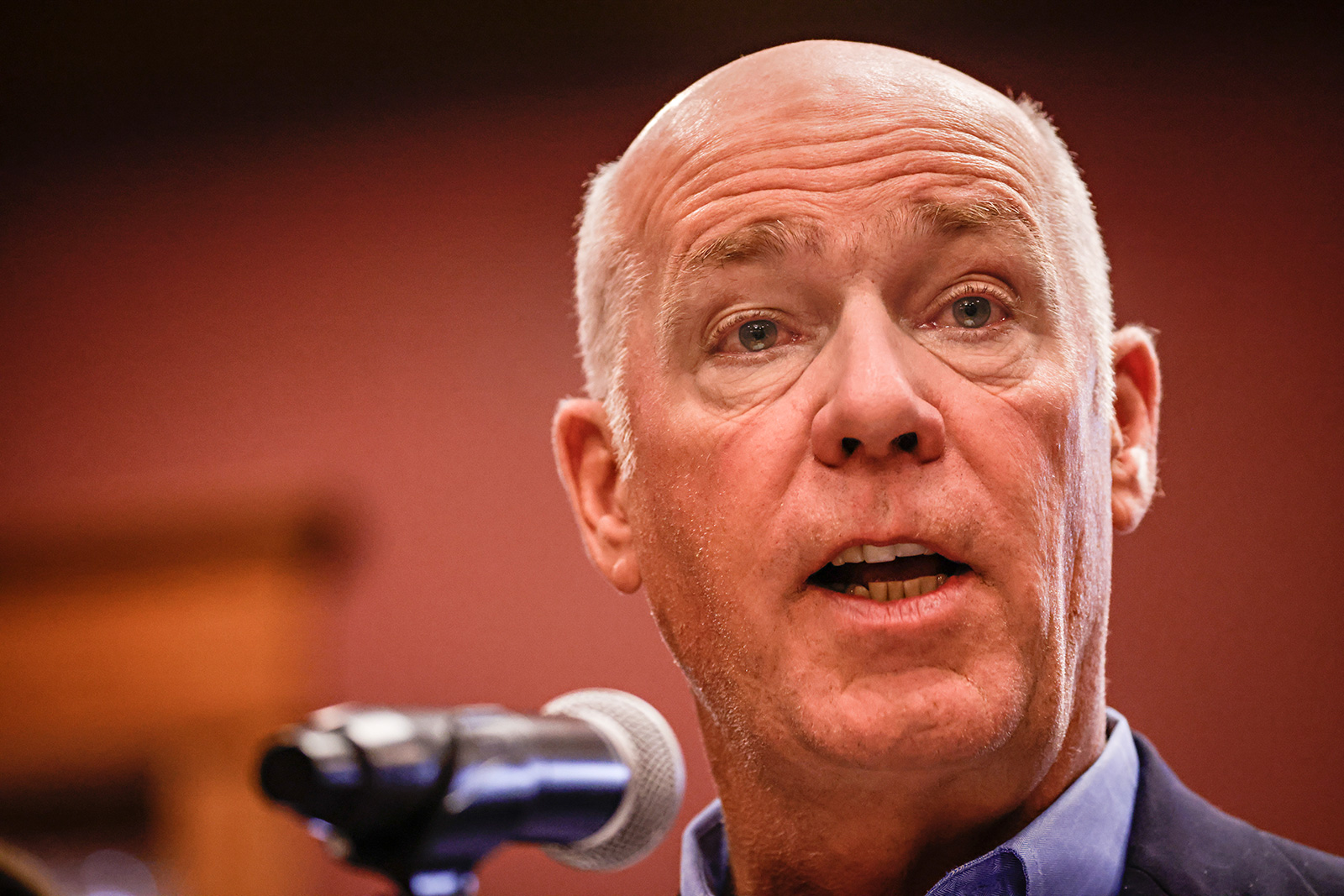Gianforte Approves Funds to Address State Hospital Waitlist, Reopen Group Homes
The $17.5 million will fund two initiatives proposed by a statewide behavioral health commission
By Mara Silvers, Montana Free Press
Montana counties and local health providers will soon be able to apply for state funding to decrease the backlog of criminal defendants waiting to be evaluated at the Montana State Hospital and increase bed capacity at community group homes hit hard by past budget cuts and pandemic-era employee turnover.
Gov. Greg Gianforte’s office announced on Tuesday the approval of the two initiatives proposed by the Behavioral Health System for Future Generations Commission, a group of lawmakers and governor appointees created during the 2023 Legislature to overhaul much of the state’s beleaguered system for treating mental illness and addiction.
The two initiatives represent $17.5 million distributed from a larger $300 million pot of funding lawmakers allocated for the commission’s work, only portions of which can be used in the first year. Although funds set aside by House Bill 872 have been used to hire consultants and support the commission’s travel for public meetings around the state, Gianforte’s announcement marks the commission’s first investments in shoring up health programs and services.
“After decades of applying Band-Aids to our broken systems and kicking the can down the road, we’re making a commitment and generational investment to get Montanans healthy,” Gianforte said in the Tuesday press release.
The first $7.5 million effort is intended to decrease waitlists for the Montana State Hospital by allowing counties to conduct court-ordered mental health evaluations at the community level, rather than requiring criminal defendants to wait until a placement opens up at the Warm Springs facility. Deemed unfit to stand trial, as many as 67 people have recently been awaiting hospital admission from jail cells around the state, prompting some judges to sharply criticize the state health department and urge immediate attention to the issue.
Under the commission-approved initiative, county governments will be able to apply for 24-month grants to contract with or hire mental health professionals qualified to conduct the evaluations.
The second initiative, totaling $10 million, is meant to increase the number of available beds at therapeutic group homes and treatment facilities by helping providers recruit more staff and cover the initial costs of expanding services. The concept was proposed to the commission by the Behavioral Health Alliance of Montana, a provider advocacy coalition that has asked for more support for local groups trying to recover from slashes to the state budget in 2017 and recent waves of employee turnover.
“There will be costs associated with hiring and training staff, re-opening closed homes, and agencies do not have the cash reserves to finance those costs,” BHAM wrote in its August funding proposal to the commission.
The initiative approved this week will allow providers to apply for one-time-only-grants to help expand or reopen beds. Some of the potential uses include building or purchasing new facilities, building maintenance or upgrades, and staff hiring and training.
The behavioral health commission is considering two other short-term initiatives to address what the group has identified as more urgent gaps in the state health system. One would distribute up to $7.5 million in one-time-only for mobile crisis units. The other would put $500,000 toward creating a curriculum for a Crisis Worker Certification Course. Neither proposal has yet been delivered to the governor’s desk.
The group is scheduled to meet next on Jan. 11 and 12 in Billings.
This story originally appeared in the Montana Free Press, which can be found online at montanafreepress.org.